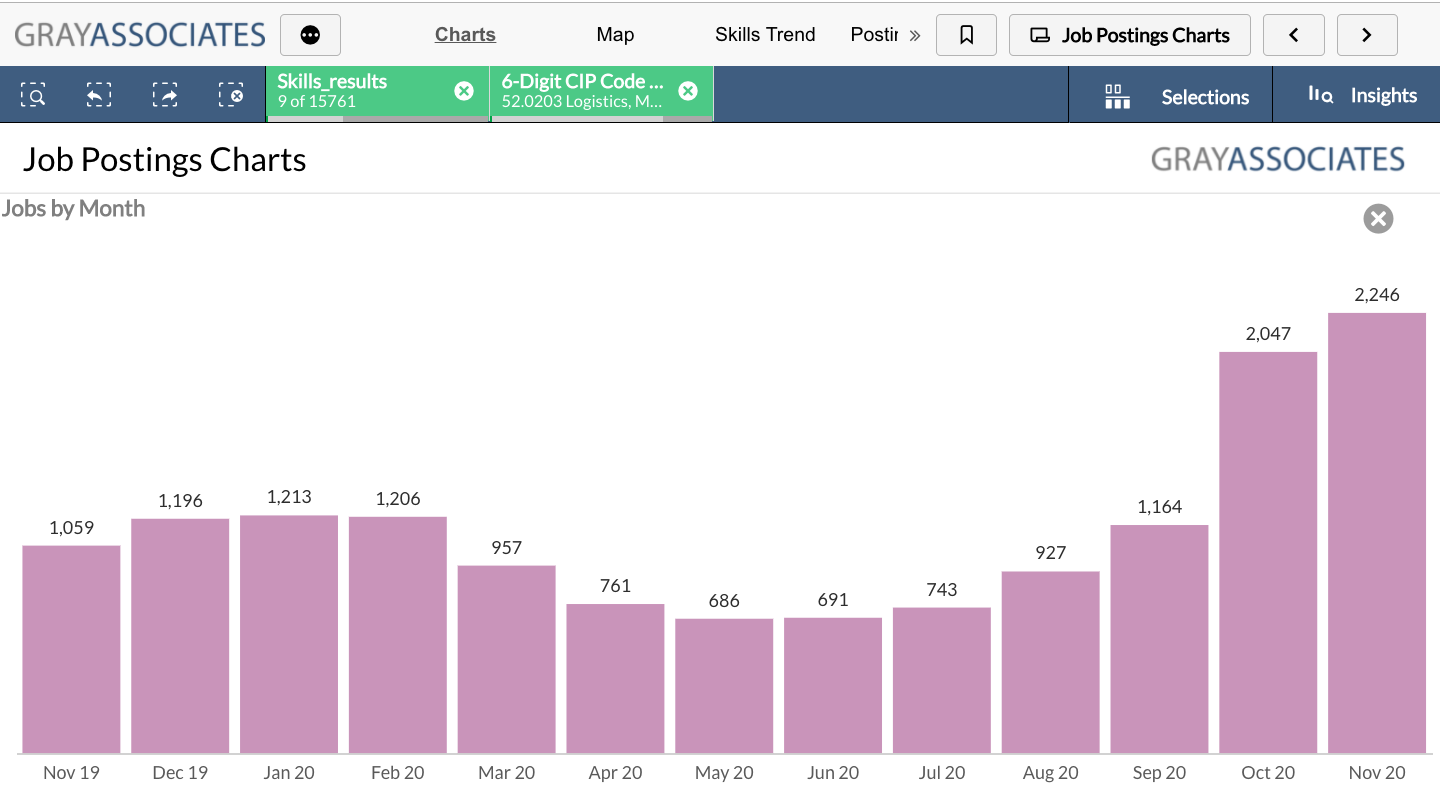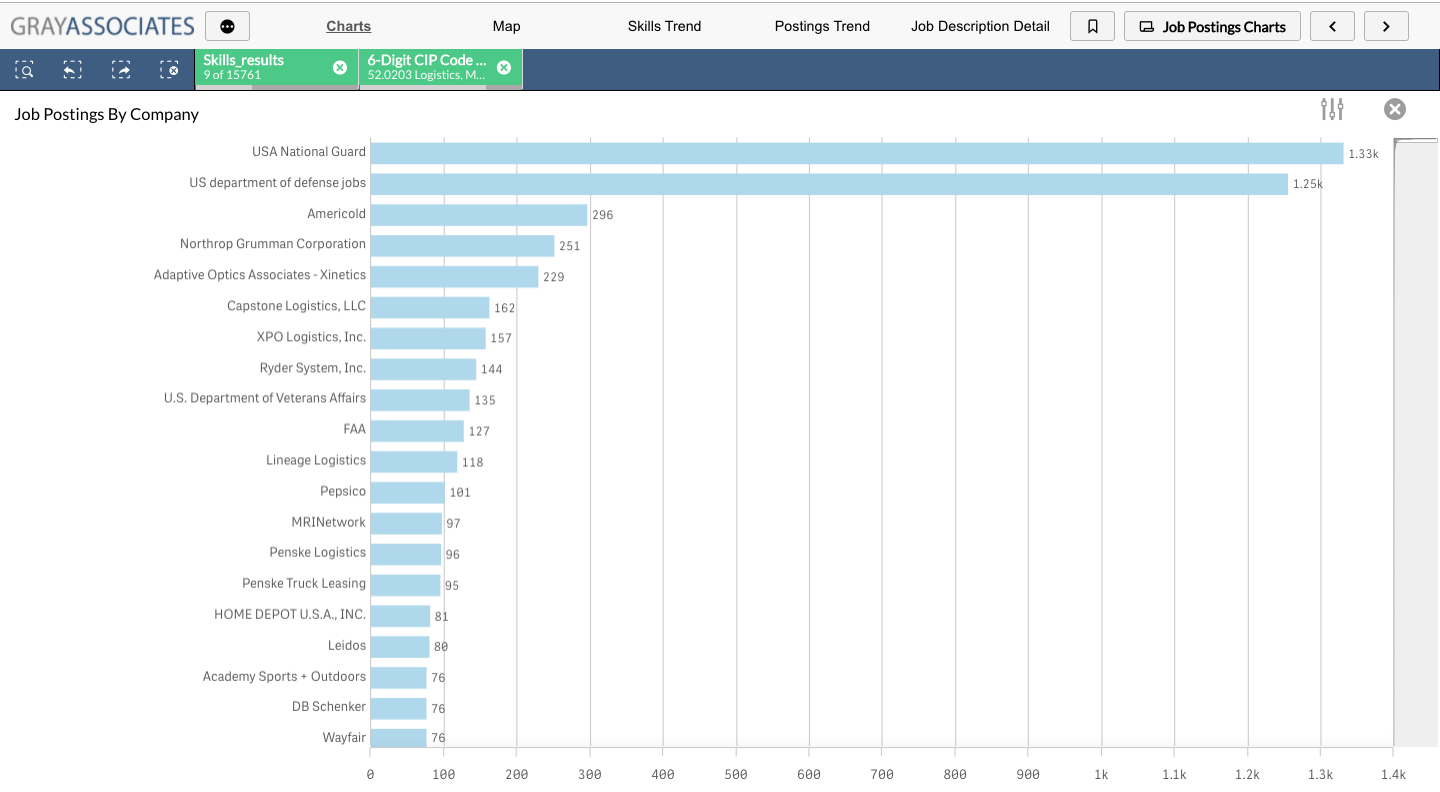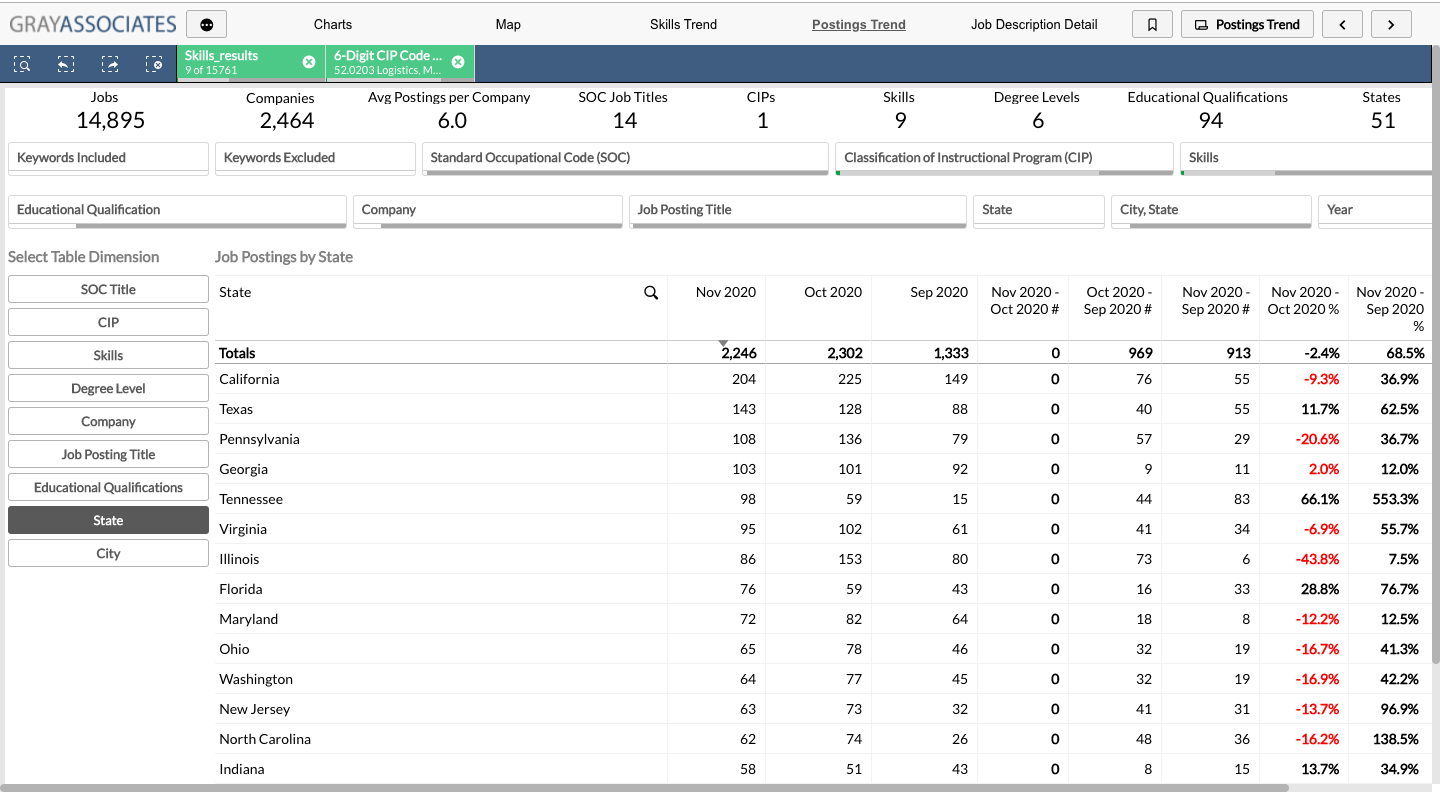Robert Gray Atkins
robert.atkins@www.graydi.us/
The Covid-19 pandemic has created logistical nightmares, many of which affected product flow and threw supply chain management into crisis. The pandemic exposed myriad vulnerabilities in supply chains. Companies saw their products trapped upstream due to breakdowns in the chain. Some products were unavailable, others no longer in demand at all. Food spoiled in warehouses and trucks, while grocery store shelves were bare, and warehouses were empty or unsafe. Many companies found themselves unable to handle increased demand for products, necessity for new packaging, safety issues, and so on.
Companies quickly realized that we have entered a new and more complicated era in supply chain management and logistics. Resilience strategies are more necessary than ever. The job market has responded accordingly.
Gray DI’ Job Postings database shows a dramatic upswing in jobs requiring skills in supply chain management and logistics, suggesting that companies are investing in an aggressive approach to the current challenges.

A more detailed look at job postings filtered by CIP codes and skills for Logistics and Supply Chain Management shows the types of positions companies are looking to fill.
Some of the largest employers include defense/government agencies, consumer products firms and retailers, and logistics specialists.

If we take a closer look at some of these postings, we find that there are concentrated areas of job growth around the country.

While not all of these jobs require advanced degrees, the vast majority of the job descriptions accompanying these postings suggest that an associate or bachelor’s degree are preferred. There is particular interest in candidates with Bachelor of Science degrees. A Master’s degree is a huge plus.
Gray’s data suggests that interest in programs related to Supply Chain Management and Logistics will continue trending upward as employers adapt to new challenges and plan for better, more advanced, and less vulnerable systems going forward. Job seekers in these fields would do well to make themselves as hireable as possible, since opportunities will continue to grow as companies find new ways forward.



